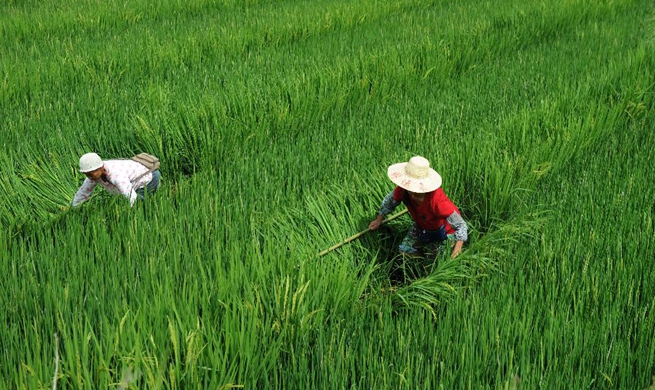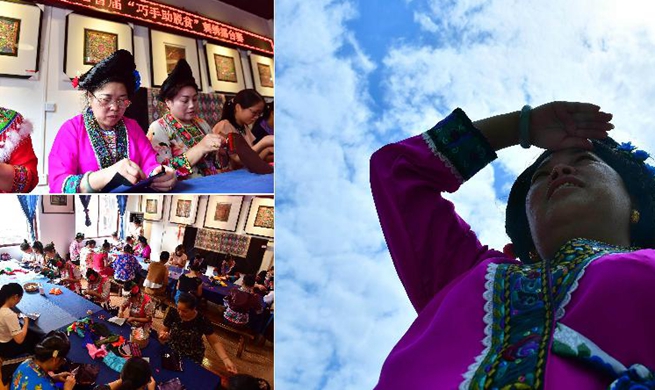ADDIS ABABA, July 30 (Xinhua) -- The Ethiopian government and the UN World Food Programme (WFP) on Monday called for more funding to address the humanitarian needs of refugees relocated in Ethiopia.
They made the joint call on Monday as the East African country currently struggles in its efforts to meet the humanitarian needs of close to 1 million refugees that are relocated to the country over the past few years, mainly from its neighboring countries South Sudan, Somalia and Eritrea.
According to the Ethiopian Administration for Refugee and Returnee Affairs (ARRA), many of the challenges that the Ethiopian government encounters in its refugee operations emanate from shortage of funding and support.
"Shortfall in funding is seriously compromising the quality of protection provided to asylum seekers and refugees in the country," Messeret Debebe, program head at ARRA, told Xinhua on Monday.
"Earmarking, unpredictability, untimely release and more notably the shortage of both humanitarian and development finance is one of the key challenges in the Ethiopia refugee operation, which in-turn is resulting in limited potential of the refugees for self-reliance and their high-dependence on humanitarian assistance," Debebe added.
Debebe, however, stressed that "even if it is not up to the level needed, we cannot take too lightly the international community's support for the government of Ethiopia in its continued efforts to expanding the refugee protection space in the country."
The number of refugees requiring food assistance from WFP has increased sharply in the last few years, in which asylum seekers and refugees in camps across Ethiopia receive a monthly in-kind food assistance being supplied by WFP and distributed by ARRA, according to Debebe.
"Comparing to the minimum humanitarian standard there is still a frequent shortage in the food supply, which I believe results mainly due to the lack of resources," she said.
Noting Ethiopia is a host to the second largest refugee population on the African continent next to Uganda, WFP officials also said funding is a serious issue.
"Our food bill is about 11 million U.S. dollar a month here in Ethiopia as we feed close to 700,000 refugees," WFP Deputy Country Director to Ethiopia, Paul Turnbull, said.
Turnbull, who indicated WFP's recent funding-related challenges including ration cut, also noted the need to keep engaging donors so as to sustain the ongoing support as the number of refugees is currently increasing mainly due to the influx from the war-torn East African nation South Sudan.
WFP also stressed the need to join hands in addressing the needs of both refugees as well as the internally displaced people who are currently in need of humanitarian assistance.
According to the International Organization for Migration (IOM) country-wide Displacement Tracking Matrix (DTM) conducted in May and June, there are 1,776,685 internally displaced people in Ethiopia, of which 1,204,577 are displaced due to conflict while the remaining 536,321 displaced due to climate change-related challenges.












